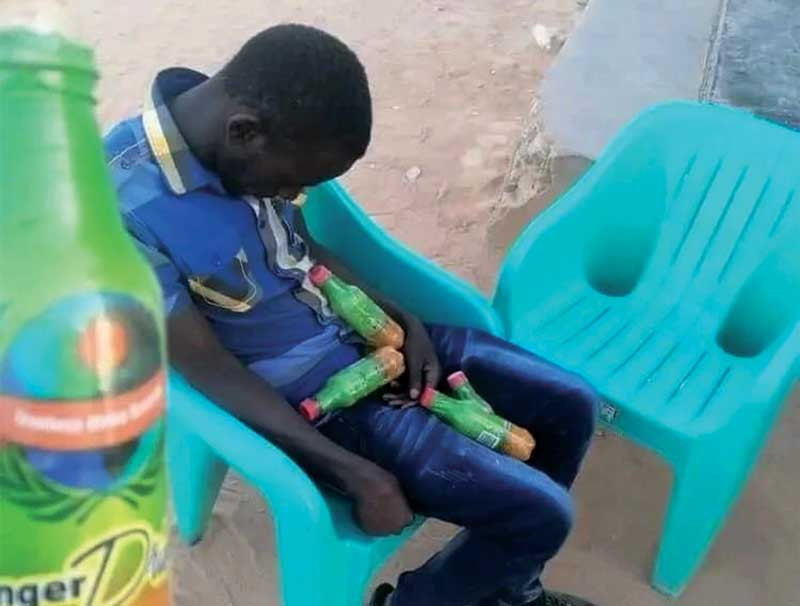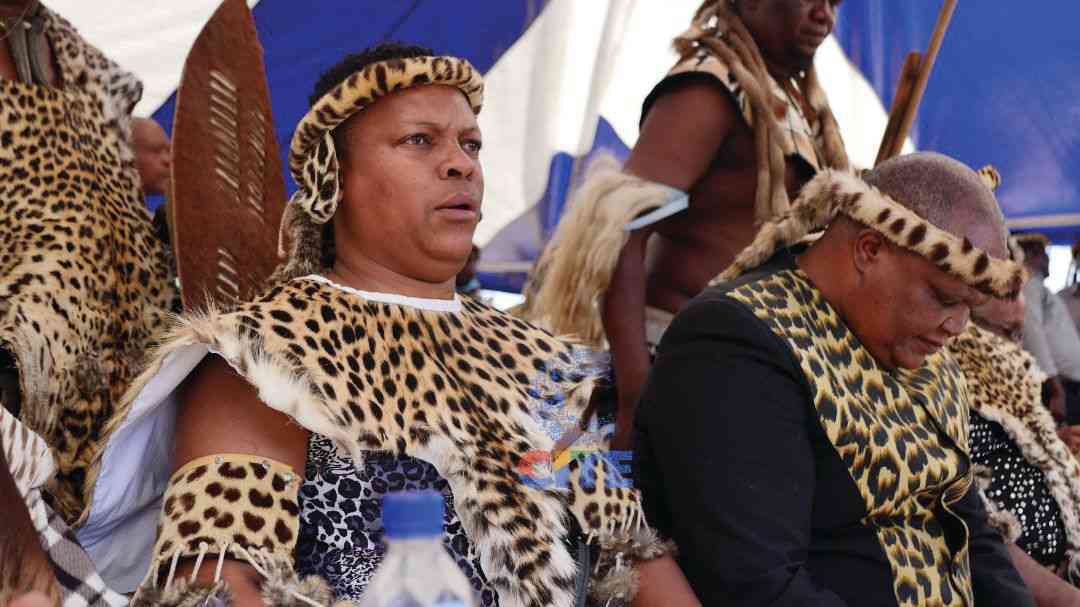
WITH several Zimbabwean youths, including their elders, struggling to make ends meet, the idea of getting a bit drunk or at least, fuzzy, has brought with it many challenges.
Many have taken to potent but dangerous forms of alcohol, which, in many cases, have led to health complications.
Communities are struggling with surging cases of drug and substance abuse, a situation that has even jolted the government to intervene.
The authorities have been forced, on several occasions, to crack down on some alcoholic beverages whose alcohol levels are untested and believed to have negative effects on people’s health.
But Zimbabweans can be enterprising, and what way would one take in a bid to get drunk, than look at other sources?
In a nutshell, Zimbabweans have shown determination in a bid to achieve certain goals.
For instance, there was a sudden rush for the Kambucha drink last year such that the government had to temporarily suspend its sale.
The drink was also touted as having medicinal properties such as those that cure flue, stomach problems and improving virility.
- Public service delivery: A peep into the 2021 Auditor-General’s report
- Govt flags Kambucha
- New by-laws tighten advertising requirements for Masvingo
- Land developer donates wheelchairs to Masvingo PWD
Keep Reading
Kambucha was touted by its consumers as a non-intoxicating product with health benefits, but was banned from supermarket shelves.
In October last year, the Masvingo City Council had to ban its employees from consuming Kambucha at work, arguing that it contained alcohol.
Its consumers, however, argue that it is a fermented tea product that they drink to boost their health.
Information, Publicity and Broadcasting Services minister Janfan Muswere said the Health and Child Care ministry, the Zimbabwe Republic Police and the Liquor Licensing Board were “investigating, banning and licensing new drinks in the market, including the Kambucha beverage drink”.
The makers of the Kambucha drink on their website said the drink “boosts your immune system, helps with weight loss, wards off high blood pressure and prevents cancer”.
After Kambucha, another drink has taken the country by storm.
The drink, produced by Tembeya Africa Beverages, has become very popular in Zimbabwe.
Many have been attracted to the drink that it has suddenly become a firm favourite among Zimbabweans.
However, some have questioned the legality of the popular drink, amid growing concern over its true alcohol content and impact on public health and call for its ban.
A Government Gazzette Volume 55 published on June 28 this year on an application for the issuance of a Part II Liquor Licence, there was Tembeya Africa applied to the Liquor Licensing Board for the issue of a Wholesale Liquor Licence on its premises along Simon Mazorodze Road in Waterfalls, Harare.
Persons with objections were expected to lodge them “in writing” not later than July 5 this year.
But the drink, sold at wholesale price by foreign-run tuckshops, including those owned by Congolese nationals, has torched a storm in Harare.
Those objecting to its production have cited a string of incidents where consumers reported experiencing rapid intoxication and loss of control of their faculties after drinking Tembeya.
In interviews conducted by NewsDay Weekender in Mbare, people said the Tembeya drink should be banned as it is alcohol in the form of soft drink and it has caused some health problems.
“Tembeya should be banned. It is an alcohol with unknown percentage. Now even ladies and school children are taking this drink and it is dangerous to their health,” a Mbare resident said.
Another added: “I take this drink because it makes me high much quickly because where I was supposed to take three Black Label quarts, I will take three Tembeya bottles and it is cheaper. Instead of using US$4,50 to buy three quarts, I only use US$1,50.”
The imbiber said three bottles of the Tembeya drink will be as intoxicating as three Black Label beer quarts, adding that the former was even more potent.
“However, it does not have a written alcohol percentage, but it is beer and we believe that it contains more alcohol in it,” another imbiber said.
He argued that Tembeya was essentially an unlabelled alcoholic beverage being marketed deceptively as a regular soft drink.
“This is not a drink. It is real alcohol ‘twumbwa’ in a different bottle. It does not have a percentage and it costs US$0,50. It’s just alcohol as it is.”
Commenting on a video of an intoxicated woman which recently went viral on social media, several people expressed concern over the drink.
“It is now the third incident of a woman who drank Tembeya and ended up falling sick, losing their senses and control,” a resident said.
They also indicated that they were not sure what the meaning of Tembeya was, amid speculation that it means “drugs” in the Democratic Republic of Congo (DRC) lingo.
“In DRC, Tembeya means drug, but here we are confused by the name Tembeya Africa Beverage.
“In its real sense, it is alcohol and it takes up to three hours for you to be intoxicated.
“What we are saying to young people is do not take it. This is not a drink, it is real alcohol,” a Mbare resident said.
“We are crying for our beloved children and calling for government intervention on this matter.”
However, a cursory internet search revealed that tembea meant walk in Swahili, while in Lingala, used commonly in the DRC, there was only tembe meaning suspicion or scepticism.
During the two-week investigation, NewsDay Weekender visited the Simon Mazorodze premises where shocked security and reception officials refused these journalists entry.
Officials from the Liquor Licensing Board said they could only make a statement after the forthcoming Heroes and Defence Forces holidays.
Medicines Control Authority of Zimbabwe (MCAZ) spokesperson Davison Kaiyo said: “The mandate of MCAZ does not include regulation of alcoholic beverages unless there are medicinal claims that are included on the label of the product.”
But the issue of beverages from east African countries has been a thorny one to many authorities in southern Africa.
In 2019, Zambian authorities were also forced to ban an energy drink after a Ugandan man complained it had caused him to have a prolonged erection.
Power Natural High Energy Drink SX, which is made in Zambia, was not marketed as a sexual aid.
But an investigation by Ugandan health authorities had found that the beverage contained sildenafil citrate the active ingredient in Viagra.
Since then, news of the drink’s side-effects had boosted its popularity.
According to a BBC report in 2019, the packaging on the drink clearly states that it “increases libido” and is an “aphrodisiac”, while claiming to “revitalise the body and mind”.
Viagra is the brand name of sildenafil citrate, the medication used to treat erectile dysfunction.
It is normally only available on prescription.
The Zambian authorities were quoted as indicating that results from both Zimbabwe and South Africa “correlated with those obtained from the Foods and Drugs Laboratory that indicated a positive presence of sildenafil citrate”.










